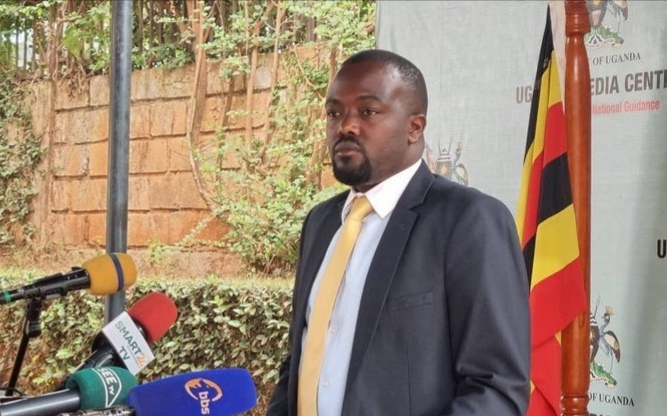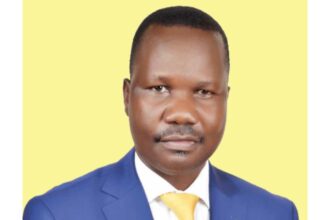The Ugandan delegation at the ongoing International Labour Organisation (ILO) Conference in Geneva, Switzerland, has held a special meeting with the organisation’s Director General, Mr. Guy Ryder, during which they discussed a wide array of issues that are of mutual interest to Uganda and the world’s labour body.
The Minister of Gender, Labour and Social Development, Hajat Janat Balunzi Mukwaya, who led the Ugandan side, commended the Director and the organisation for extending technical and financial support to Uganda.
She however enumerated several areas in which she requested ILO to support Uganda, among these being a reminder of a commitment made by the Director in June 2016 promising financial and technical support to set up a library for the Industrial Court and equipping it with books and electronic gadgets for case management; and training of Labour Officers.
Mukwaya, who was accompanied by the Gender Ministry Permanent Secretary and Alternate Head of Delegation, Mr. Pius Bigirimana, Employers’ representatives led by Mrs. Rose Mary Ssenabulya and Workers’ representatives led by Mr. Peter Werikhe, appealed for support to pilot and roll out the National Apprenticeship Framework.
The Gender Ministry is putting together an apprenticeship programme which is an employment-based training scheme that targets unemployed school dropouts, school leavers and university graduates. Under the scheme, the apprentice (trainee) is attached to a practical job with an experienced staffer who passes on the skills. At the end of the attachment period the apprentice is given an internationally recognised award of a qualification and/or licence.
Unlike internship, apprenticeship is regulated by law and comes with an employment contract and wages for the trainee. The programme is key in addressing skill shortages on a sectoral basis while providing employment.
Mukwaya also asked ILO for support to conduct specialized training for Labour and Occupational Safety and Health Inspectors; Training of Industrial Court Panelists; Development of the Labour Productivity Policy; Development of training modules for Labour and Occupational Safety & Health Inspection; and Assessment of Labour and Occupational Safety & Health Inspection needs.
Other areas included support towards ratification of Convention 129; Review of the current generation of Labour Laws; and Review of the second decent work country programme.
The Minister also made mention of the numerous achievements the Government of Uganda has scored in the labour sector. These included revitalization of the Industrial Court which has since settled 823 cases, institution of the Minimum Wages Advisory Board which has conducted a study and submitted a report currently being discussed by Cabinet; and the conducting of an Employment Diagnostic Study for Uganda.
She also noted that during the Second Specialized Technical Committee Meeting of the African Union on Social Development, Labour and Employment held in Algiers, Algeria in April 2017, Uganda was elected as a Deputy Member to represent the East Africa Region in the Governing Body of ILO.
Uganda will officially assume the seat next week.
The Minister added that Government had approved the Green Jobs and Fair market project and its implementation is going on well; also domesticated the International Convention on Toxic Chemicals and is promoting Occupational Safety and Health through registration of all work places and mandatory inspections.
Other achievements enumerated included the inspection of 700 work places since June 2016 and submission of the National Job Creation Strategy to Cabinet; and Induction of the Labour Advisory Board among others.
Mukwaya commended the ILO chief for his great vision on initiating the decent work agenda as a dynamic tool for promoting social justice and quality employment throughout the world; and for the able leadership as evidenced by the many reforms he has introduced.
The international labour conference is an annual event attended by ILO member states and one of its major roles is crafting and adoption of international labour standards in the form of Conventions and Recommendations.
Do you have a story in your community or an opinion to share with us: Email us at Submit an Article






